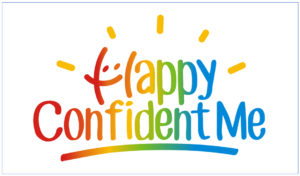In the ‘strict’ old days the rules ran that children be rewarded for achievements and reprimanded or punished for their failures. Fear of (sometimes physical) punishment was seen as a great incentive not to fail. But In the 60’s the thinking changed and bolstering children’s self-esteem by heaping on the praise became all important. This thinking endures today 85 percent of American parents think that their children need to hear that they are clever in order to succeed.
But recently psychologists have discovered that praising children too much can be just as counterproductive as criticizing them.
How can praise damage a child?
For ten years, psychologist Carol Dweck and her team at Columbia examined a group of primary school children and saw how they responded to praise. She discovered that children tend towards two mindsets. The first is a ‘fixed mindset’, the child who believes that his or her intelligence is set in stone, and that only tasks appropriate to this level of intelligence should be chosen, lest failure result. The second, healthier mindset is the ‘growth mindset’ belonging to the child who is happy to take on new challenges because they see them as opportunities for growth and new experience, even if this involves making mistakes. Dweck discovered that the children’s experience of praise had everything to do with these mindsets. The ‘failure fearing’ children were generally used to being praised for their intelligence, whereas the second (the try-and-try-againers) were more familiar with being praised for their effort, rather than the outcome.
“Emphasizing effort gives a child a variable that they can control,” Carol Dweck explains. “They come to see themselves as in control of their success. Emphasizing natural intelligence takes it out of the child’s control, and it provides no good recipe for responding to a failure.”
Are there any other disadvantages to over praising?
Best selling author Alfie Kohn claims that the reason praise can work in the short run is that young children are hungry for our approval. But that we as parents have a responsibility not to ‘exploit that dependence for our own convenience’.
He refers to ‘sugar-coated control”, when parents use praise as a from of verbal reward to get children to do what they the parents want them to do, rather than working with their children on a shared goal. Parents also use praise to overcompensate for a lack of something. So for example, after a long day of separation, a parent might heap on the praise indiscriminately as a form of condensed love. The danger of this kind of ‘blanket praise’ is that children tend to see through it and then discredit, or they become “praise junkies”.
‘It leads them to measure their worth in terms of what will lead us to smile and dole out some more approval.’ Similarly over awareness of a parent’s judgment can lead a child to abandon a task if they feel that their parent is no longer interested in it. Kohn firmly believes in a child’s right (and need!) to be able to value his or her own work for himself or herself.
So when and how should we be praising our kids?
The 10 Best Ways to Praise
- Make it about them. What we ultimately want is for our children to develop their own power of self-evaluation, rather than become “praise junkies”, dependent on us to tell them if they are doing well. Instead of “I’m so proud of you”, you can help them realise their own achievements by asking them instead “You have worked hard and did really well on this test, you must feel proud of yourself?” and once they answer “Yes I am”, you can always add: “I am proud of you too”!
- Be selective in your praise – praise everything your child does and he or she will either discount what you are saying or become dependent on praise for self affirmation. Don’t overdo it.
- Praise the effort: When we focus on our children’s effort, rather than their achievement. we encourage them to learn the art of motivation and self-evaluation: “Yes I worked really hard to get to this result so it’s worth making the effort in the future”.
- Praise descriptively rather than using “evaluative” praise – Instead of saying “Wow, this is so beautiful” your child a question eg. “How did you do this part?” or describe what you see, eg. “Wow the chicken in your drawing looks so lifelike!”. Your child will appreciate that you have taken an interest in his or her work and how it was executed and is more likely to realise his or her achievements and start talking about their work.
- Praise specific actions rather than their overall behaviour – This allows your child to realize that a behaviour is something that they choose rather than something they are. For eg. instead of saying “You’ve behaved really well when Granny was here”, you can say “I really appreciated that you helped Granny with … during her visit”.
- Accentuate the positive, reduce the negative – Make sure that your positives outweigh the negatives so that you fill your child’s “I’m capable” account instead of filling the “I’m not capable” account. For example, rather than saying ‘No, that’s not the way to do this’, suggest for eg. ‘I see that you’ve done it this way. I would’ve done it differently. Can I show you another way?’
- Try not to criticise – Even “constructive criticism” can be interpreted by your child as being negative. You need to try and always identify the good things in something that you child has done and ask the child to explain the reason for his success (usually the effort that they’ve put into it). This helps fill the “I’m capable account”. If you feel that there is room for improvement, you can then add: “what could you better next time”?
- Be honest. Even young kids can see right through false praise. It is important to remain honest. If you’re not impressed by your child’s achievement, you don’t have to label their action as good or bad and can just mention something like: “I see that you’re practicing your ….” And this lets your child know she has your attention.
- Let your child eavesdrop; make sure your child overhears you praising something that he or she did to your partner or friend (but don’t overdo it, boastful parents are rarely popular).
- You don’t always need to say something – Sometimes giving them a smile or a hug can be more powerful that using words.












































